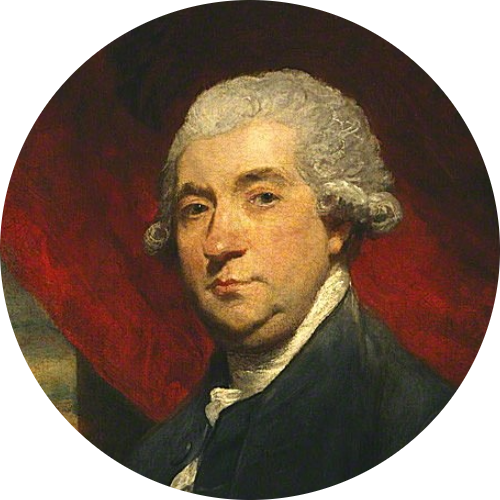Son of Sir Robert Eden, 3rd Bart of Windlene Hall, and Mary Davison. Married (1778) to Eleanor Eliot (1758-1818), with whom he had 14 children.
After his education at Durham School, Eton, and Christ Church, Oxford, Eton studied law and was called to the bar in 1768.
He served as Under-Secretary of State for the North (1772-1778), Member of Parliament for Woodstock (1774-1784), and Lord of Trade (1776-1782).
As early as 1771, Eden had published the book Principles of Penal Law, and in 1778 he was successful in passing legislation improving prisoner treatment. In that same year, he was part of a failed peace mission to the American colonies with the Earl of Carlisle, and he headed British intelligence in Europe during the American War of Independence.
Eden became Chief Secretary for Ireland (1780-1782), a member of the Irish Privy Council (1780) and he helped establish the Irish National Bank. He represented Dungannon in the Irish House of Commons (1781-1783) and served as Joint Vice-Treasurer of Ireland (1783-1784).
Eden later represented Heytesbury in Parliament (1784-1793), joined the British Privy Council (1784), and held diplomatic posts in France, Spain, and the Netherlands. He was elevated to the Irish peerage as Baron Auckland (1789) and retired in 1793, receiving a pension and a British peerage.
In retirement, Eden maintained ties with William Pitt the Younger and later served in multiple government roles, including Joint Postmaster General (1798) and President of the Board of Trade (1806-1807). In 1789 he became the 1st Baron Auckland, and the Auckland Islands are named after him.
Boswell met William Eden in the company of James Macdonald and others during his short visit to Oxford, April 23-26, 1763.
Some of his writings can be found today on online used books search engines such as AbeBooks, including Some Remarks on the Apparent Circumstances of War (1795), Four Letters to the Earl of Carlisle by William Eden (1779) and his Principles of Penal Law (1771).
